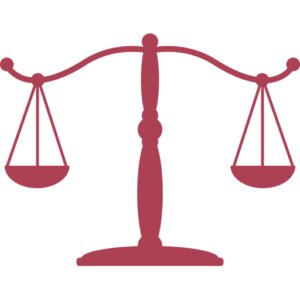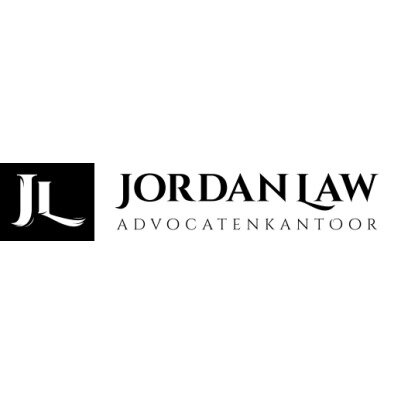Best Discrimination Lawyers in Netherlands
Share your needs with us, get contacted by law firms.
Free. Takes 2 min.
Or refine your search by selecting a city:
List of the best lawyers in Netherlands
About Discrimination Law in Netherlands
The Netherlands is known for its progressive standpoint on equality and equal treatment. Discrimination in the Netherlands is illegal and is addressed both by national legislation and international commitments. The Dutch Constitution itself bans discrimination, ensuring equal treatment and protecting citizens against bias based on race, gender, age, sexual orientation, political belief, religion, and other identifiers. In practice, discrimination law in the Netherlands encapsulates a range of acts and policies aimed at preventing and addressing unequal treatment, fostering an environment of inclusivity and respect for all individuals.
Why You May Need a Lawyer
Legal intervention may be necessary in several discrimination scenarios, including but not limited to:
- Workplace discrimination based on gender, age, or disability.
- Refusal of services or access to facilities due to race or religion.
- Discriminatory practices in housing or education institutions.
- Unequal treatment by governmental or non-governmental institutions.
- Harassment or hostility motivated by racial or ethnic bias.
In situations like these, a lawyer can help you understand your rights, navigate the legal system, and pursue justice or compensation.
Local Laws Overview
The Dutch legal framework concerning discrimination includes several key pieces of legislation:
- Equal Treatment Act (AWGB): Prohibits discrimination on various grounds including but not limited to race, gender, and sexual orientation.
- Working Conditions Act: Addresses discriminatory workplace practices and ensures safe and equitable work environments.
- Equal Treatment (Disability and Chronic Illness) Act (WGBH/CZ): Ensures reasonable accommodations for disabled persons.
- Penal Code Articles 137c-137e: Criminalize incitement to hatred, discrimination, and violence.
These laws are enforced both through civil routes and criminal law where applicable, and are meant to protect individuals and groups against discrimination in various settings.
Frequently Asked Questions
What constitutes discrimination under Dutch law?
Discrimination refers to any form of differentiation, exclusion, restriction, or preference that is meant to nullify or impair equality in rights or opportunities based on personal characteristics such as race, gender, or religion.
Can I report workplace discrimination anonymously?
Yes, you can make anonymous reports through certain channels or consult a lawyer to assist you in maintaining anonymity while addressing your concerns.
What is positive discrimination, and is it legal?
Positive discrimination, also known as affirmative action, involves measures to support historically disadvantaged groups. It is legal under Dutch law when aimed at promoting equal opportunities.
How do I file a discrimination complaint in the Netherlands?
You can file a complaint with the Netherlands Institute for Human Rights or through legal proceedings, and it is advisable to document incidents and seek legal guidance.
Is there a time limit to file a discrimination lawsuit?
Yes, generally you must file within five years of the incident, but it is recommended to consult a lawyer for case-specific guidance.
Can discrimination cases be settled out of court?
Yes, many discrimination disputes are resolved through mediation or settlements outside the courtroom.
What evidence is required to prove discrimination in court?
Evidence can include documentation of incidents, witnesses, correspondence, and patterns of behavior indicating discriminatory practices.
Are there any exceptions to discrimination laws in the Netherlands?
Certain distinctions may be allowed if necessary and proportionate to achieve a legitimate aim, such as safety requirements in specific jobs.
What support is available for discrimination victims?
Support includes legal aid, counseling services, and governmental and non-governmental organizations providing assistance and advocacy.
Can I seek compensation for discrimination?
Yes, victims of discrimination may seek financial compensation or other remedies such as reinstatement or policy changes.
Additional Resources
For further assistance, consider reaching out to the following organizations and resources:
- Netherlands Institute for Human Rights: Provides information and assistance regarding discrimination complaints.
- Anti-Discrimination Bureaus (Antidiscriminatiebureaus): Offer local support and advice.
- Legal Aid Board (Raad voor Rechtsbijstand): Provides information on accessing legal aid if financial constraints exist.
Next Steps
If you suspect that you have been a victim of discrimination, consider taking the following steps:
- Document all incidents, including dates, times, and descriptions of discriminatory behavior.
- Consult with a lawyer specializing in discrimination to understand your options and potential legal courses of action.
- Consider reaching out to local anti-discrimination bureaus or the Netherlands Institute for Human Rights for advice and support.
- Initiate formal complaints if necessary, following the guidance provided by legal professionals or relevant organizations.
Lawzana helps you find the best lawyers and law firms in Netherlands through a curated and pre-screened list of qualified legal professionals. Our platform offers rankings and detailed profiles of attorneys and law firms, allowing you to compare based on practice areas, including Discrimination, experience, and client feedback.
Each profile includes a description of the firm's areas of practice, client reviews, team members and partners, year of establishment, spoken languages, office locations, contact information, social media presence, and any published articles or resources. Most firms on our platform speak English and are experienced in both local and international legal matters.
Get a quote from top-rated law firms in Netherlands — quickly, securely, and without unnecessary hassle.
Disclaimer:
The information provided on this page is for general informational purposes only and does not constitute legal advice. While we strive to ensure the accuracy and relevance of the content, legal information may change over time, and interpretations of the law can vary. You should always consult with a qualified legal professional for advice specific to your situation.
We disclaim all liability for actions taken or not taken based on the content of this page. If you believe any information is incorrect or outdated, please contact us, and we will review and update it where appropriate.
Browse discrimination law firms by city in Netherlands
Refine your search by selecting a city.














